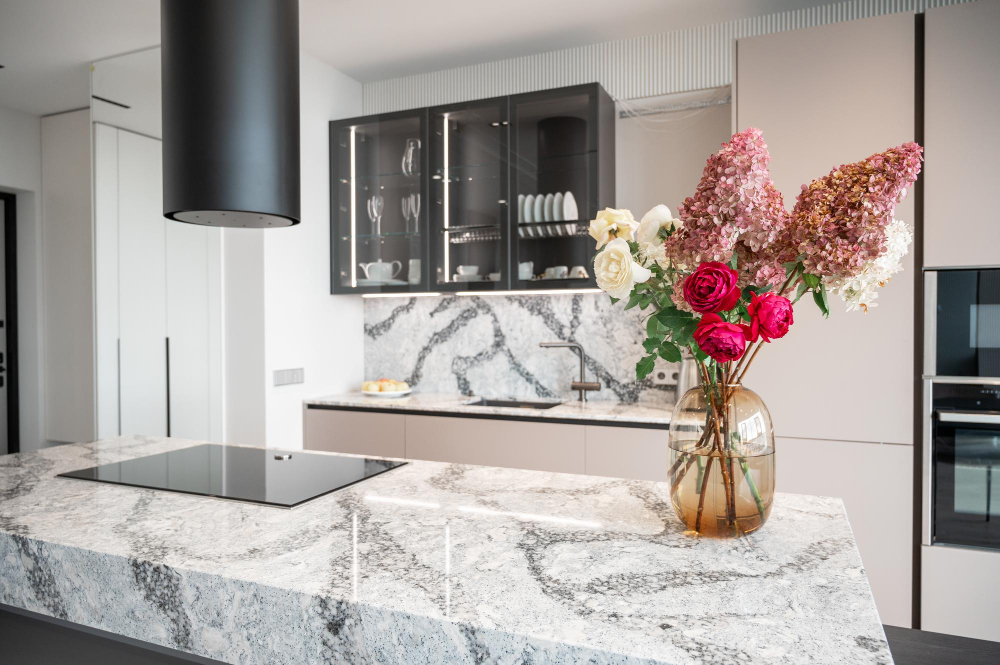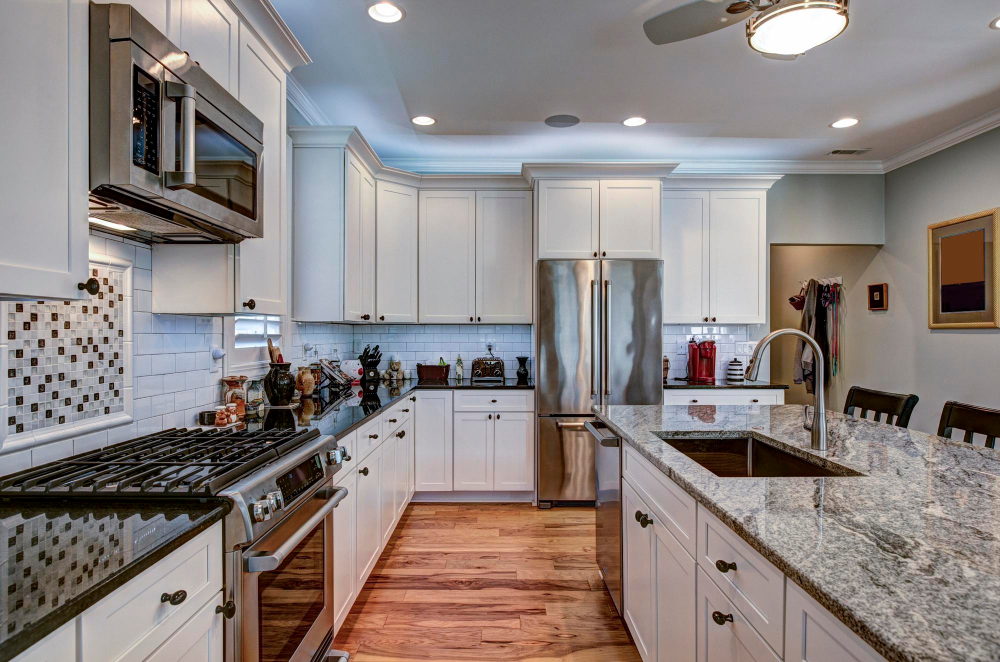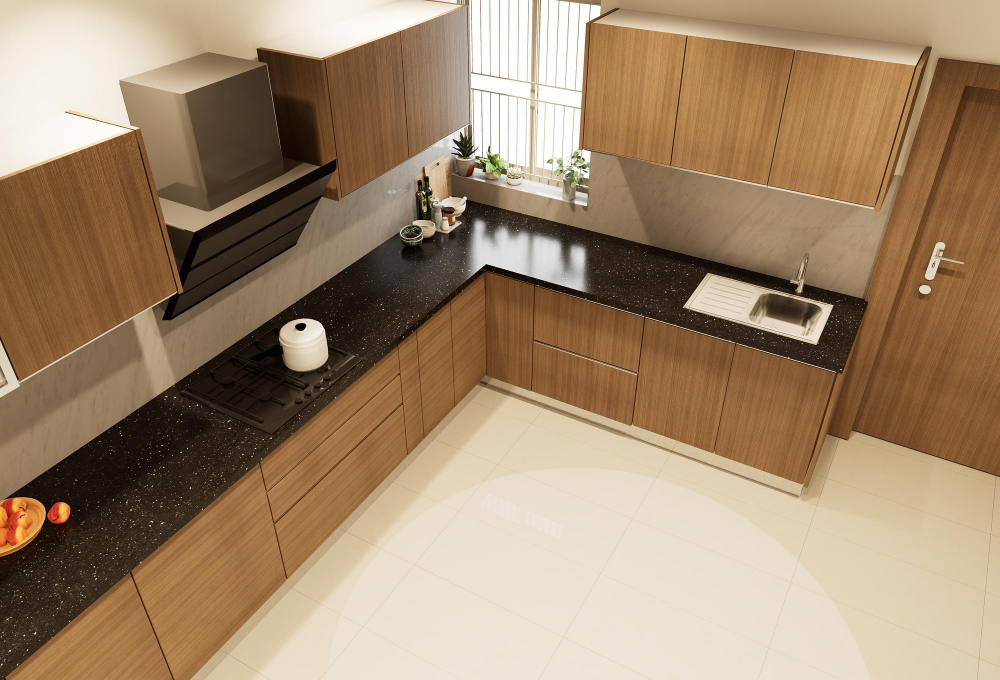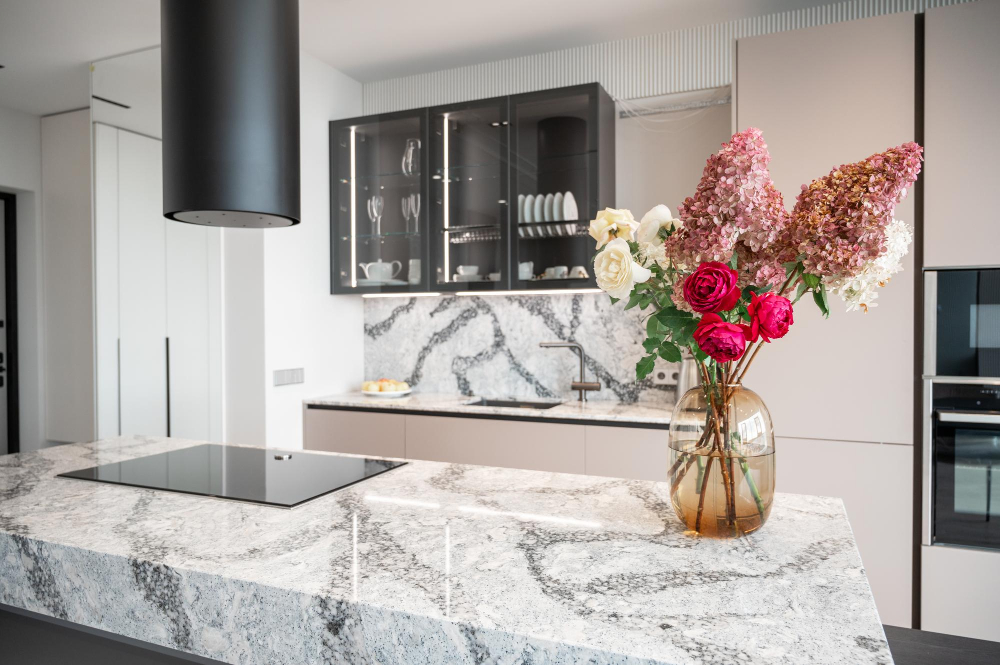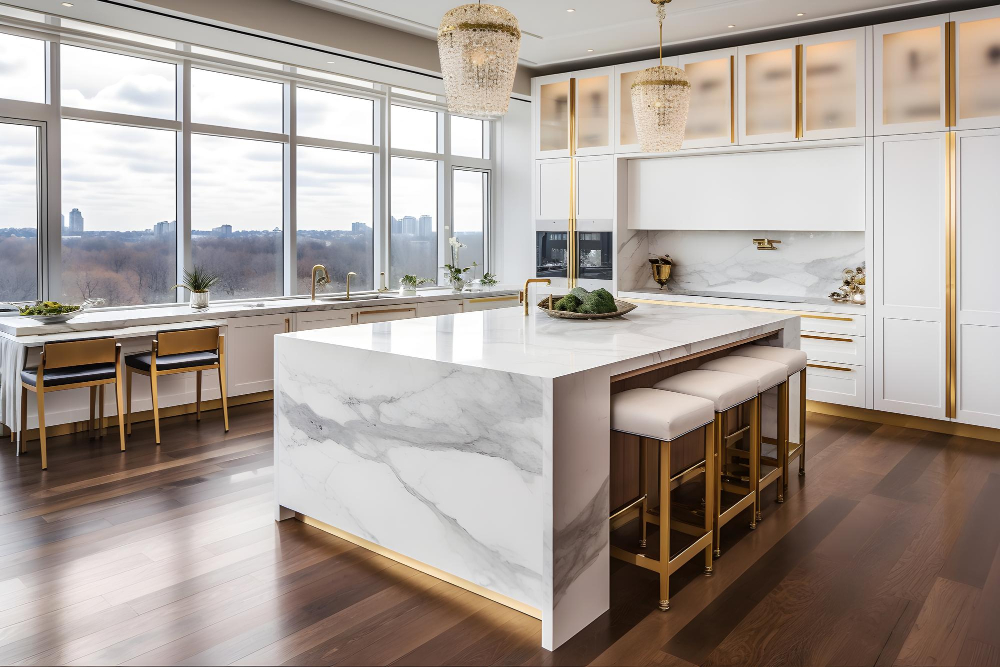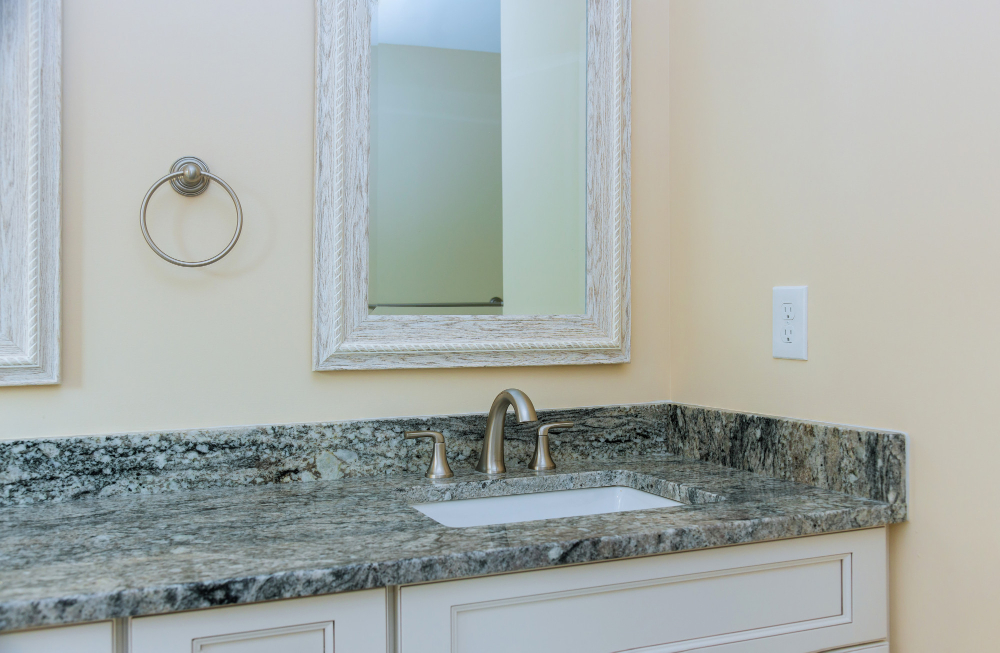Last updated on
Discover 20 fantastic countertop options for undermount sinks, designed to transform your kitchen space with style and functionality.
Welcome to my latest blog post where I’m going to take you through 20 amazing countertop options for undermount sinks that won’t break the bank. As a home decorator, I understand how important it is to have a beautiful and functional kitchen.
And when it comes to choosing the right countertop for your undermount sink, there are so many options available that it can be overwhelming. That’s why I’ve done all the research for you and put together this comprehensive list of affordable yet stunning countertop options that will transform your kitchen into a space you’ll love spending time in.
So let’s dive in and discover some amazing ideas!
Granite
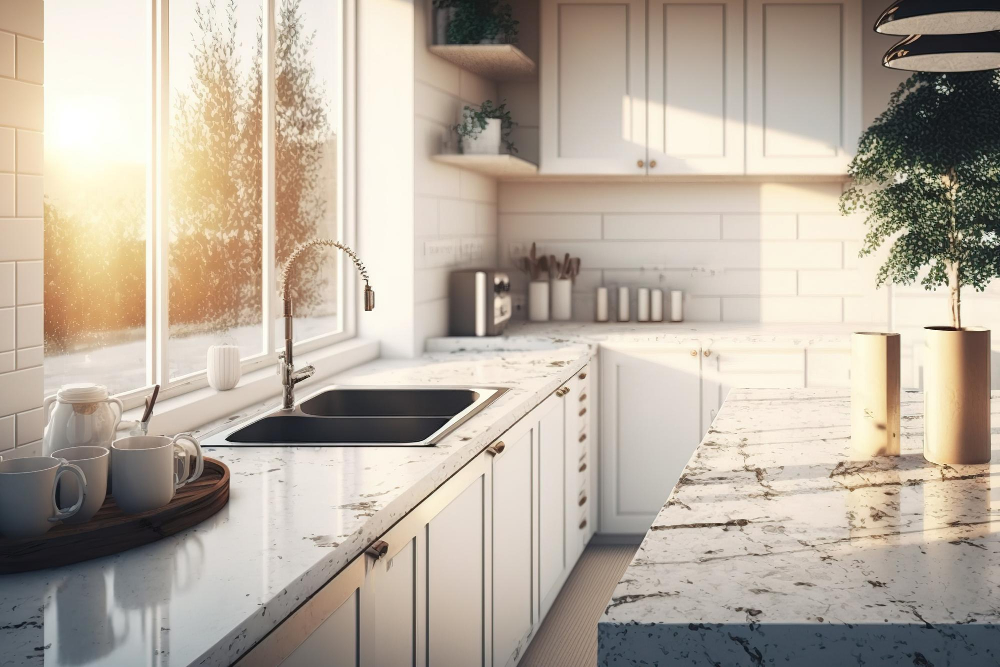
Granite is a popular choice for undermount sinks due to its durability and natural beauty. It comes in a wide range of colors, patterns, and finishes that can complement any kitchen style.
Granite countertops are resistant to scratches, heat, and stains when properly sealed. However, it requires regular maintenance such as sealing every 1-2 years to prevent staining from acidic substances like lemon juice or vinegar.
The cost of granite varies depending on the quality and rarity of the stone but generally falls within the mid-to-high price range for countertop materials. Granite is an excellent option if you’re looking for a long-lasting countertop with timeless appeal that will add value to your home’s resale potential.
Quartz
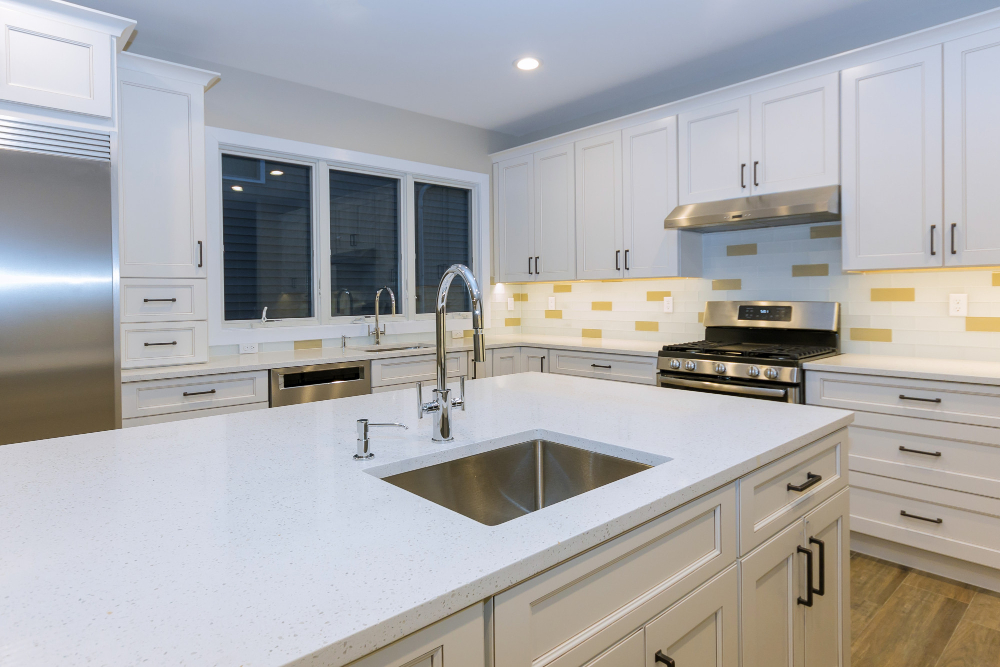
It is made from natural quartz crystals mixed with resin, making it resistant to scratches, stains, and heat. Quartz comes in a wide range of colors and patterns that mimic the look of natural stone such as marble or granite but without the high cost or upkeep.
Quartz does not require sealing like other materials do which makes it an ideal option for busy households who want beautiful countertops without having to worry about constant upkeep.
Marble
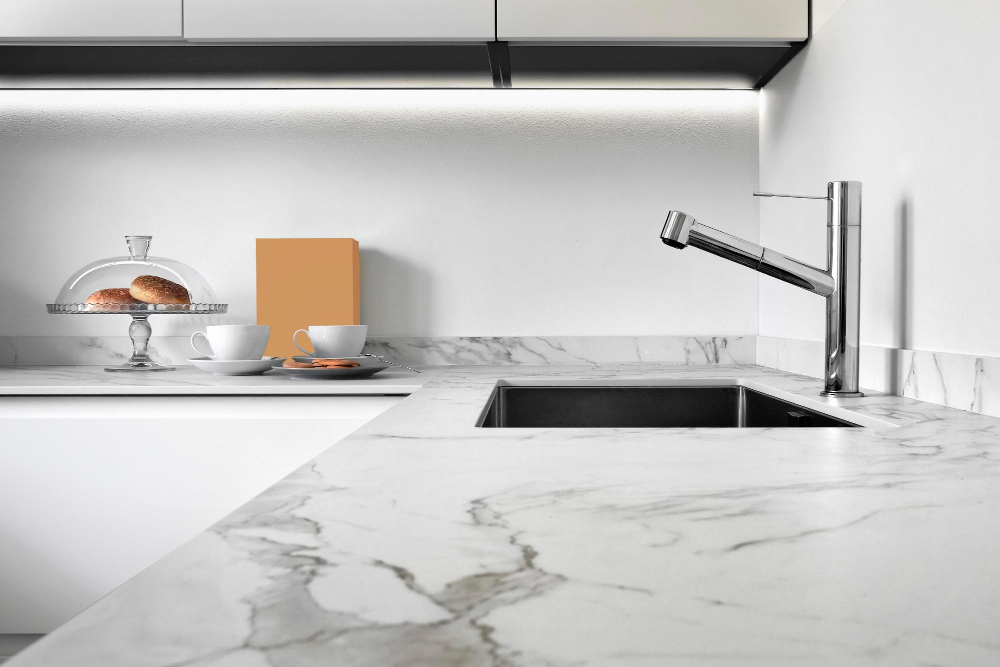
It adds elegance and sophistication to any kitchen or bathroom. However, it can be quite expensive compared to other materials on the list.
Marble countertops require regular maintenance as they are prone to staining, etching, and scratching due to their porous nature. If you decide on marble for your undermount sink countertop, make sure you seal it properly with a high-quality sealer that will protect against stains from liquids such as red wine or coffee spills.
Avoid using acidic cleaners like vinegar or lemon juice which can damage the surface of your marble countertop over time.
Concrete
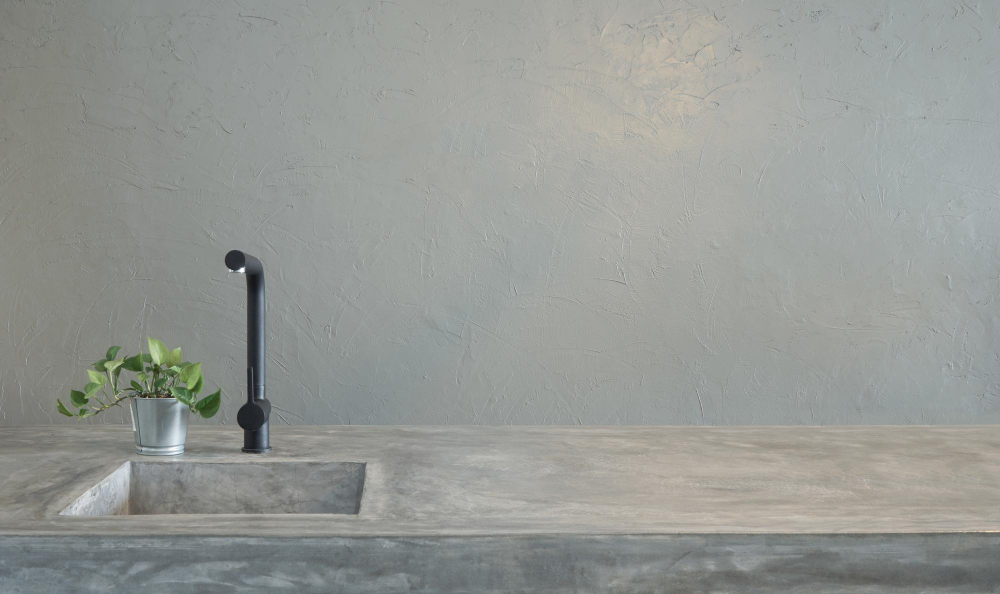
It can be molded into any shape, size, or color to fit your design needs. Concrete countertops are also heat-resistant and scratch-resistant, making them ideal for busy kitchens.
They require regular sealing to prevent staining but with proper maintenance can last a lifetime. Concrete is an eco-friendly option as it can be made from recycled materials such as fly ash or glass aggregates.
With the right sealant and finish options like acid-staining or polishing techniques, you can create unique designs that will make your kitchen stand out while staying within budget!
Solid Surface (Corian)
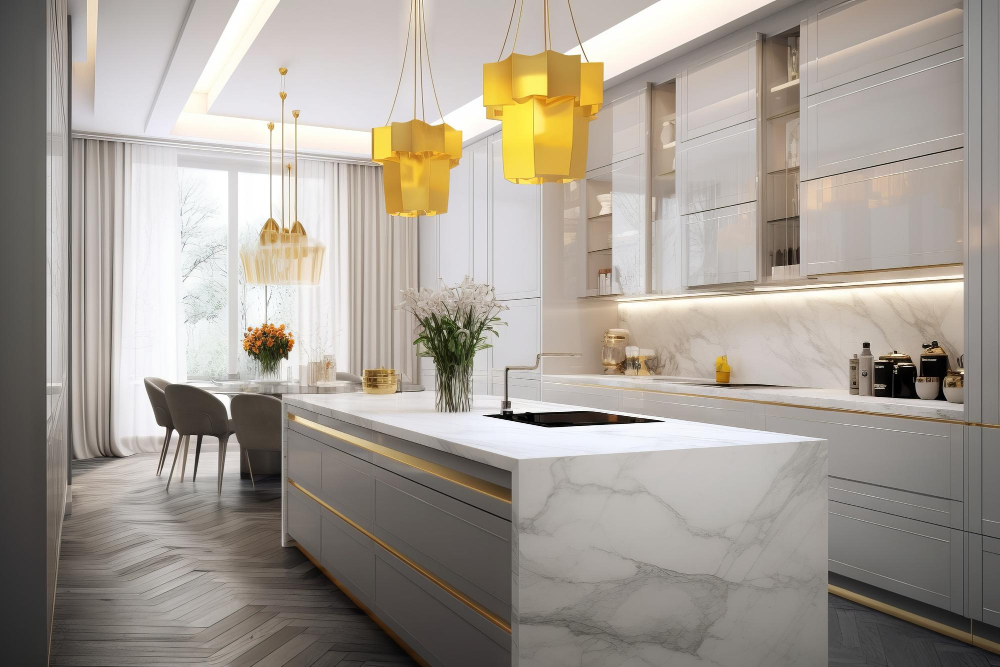
These non-porous surfaces are easy to clean and maintain, making them ideal for busy kitchens. Corian is available in a wide range of colors and patterns that can mimic the look of natural stone or even wood grain.
It’s also possible to create custom designs with this material by using heat-forming techniques. While solid surface countertops may not be as durable as some other options on the market, they offer an affordable alternative that can still provide a sleek and modern look in your kitchen design scheme.
Stainless Steel
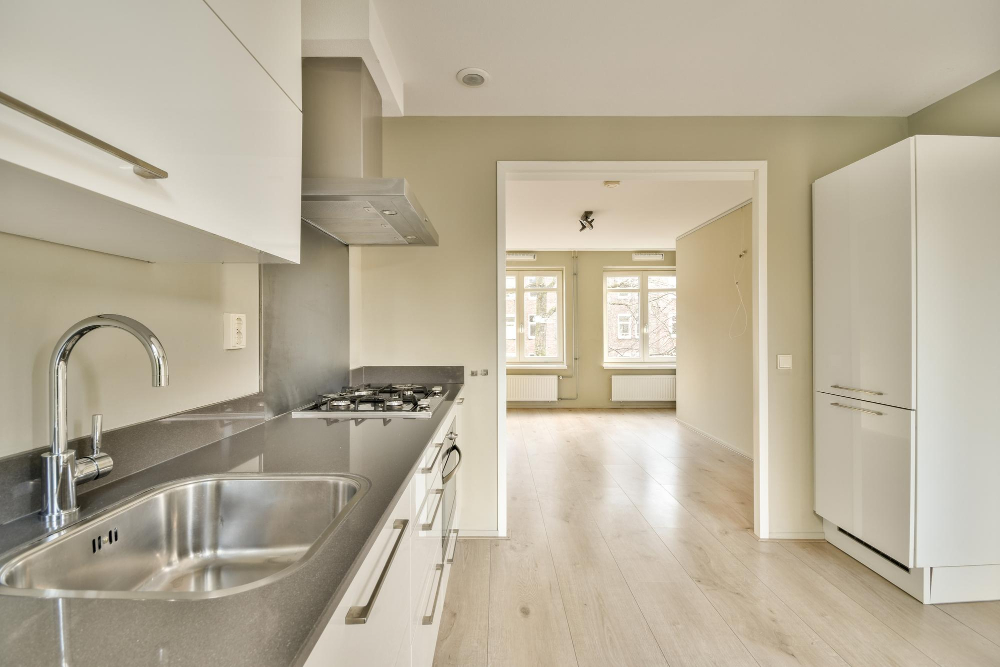
It is resistant to stains, scratches, and heat damage. Stainless steel countertops are also easy to clean with just soap and water or a mild cleaner.
One downside of stainless steel countertops is that they can be noisy when dishes or utensils are placed on them. However, some manufacturers offer sound-deadening options that reduce noise levels.
Another consideration when choosing stainless steel countertops is the finish. A brushed finish hides fingerprints better than a polished one but may show more scratches over time.
Butcher Block
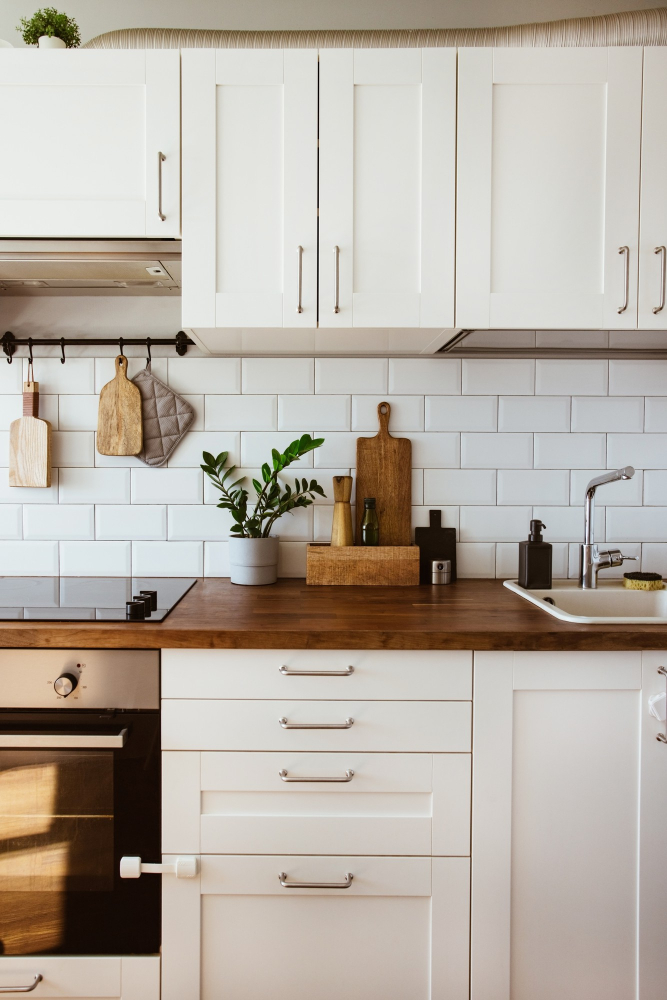
It’s made from strips of wood that are glued together to create a sturdy surface. Butcher block can be made from various types of wood, including maple, cherry and oak.
The warm tones and natural texture of the wood add warmth to any space.
One advantage of butcher block is its durability – it can withstand heavy use without showing wear and tear as easily as other materials might. However, it does require regular maintenance such as oiling or sealing to prevent damage from moisture.
Another benefit is that scratches or dents on the surface can be sanded out relatively easily with sandpaper or an electric sander.
Butcher block also has some downsides – it’s not heat-resistant so hot pots should never be placed directly on the surface; cutting directly on the countertop will leave marks; and spills need to be wiped up immediately since they could stain if left too long.
Soapstone
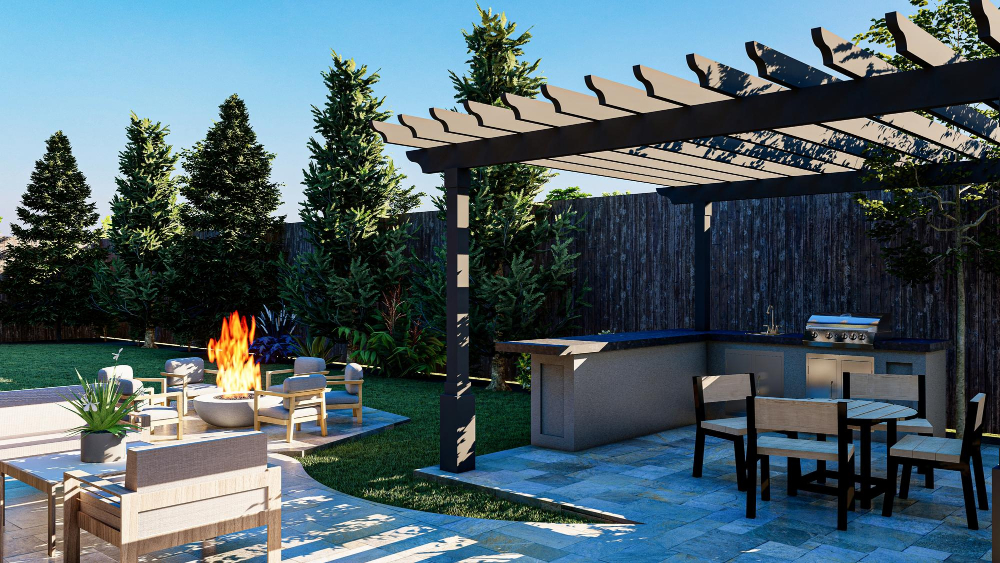
It’s a popular choice for countertops because of its durability and resistance to heat, stains, and scratches. Soapstone comes in various shades of gray with subtle veining patterns that add character to any kitchen or bathroom design.
One unique feature of soapstone is its ability to darken over time as it ages and develops patina. This characteristic gives soapstone countertops an antique look that many homeowners find appealing.
While soapstone requires regular maintenance such as oiling the surface periodically, it’s relatively easy to clean with mild dishwashing detergent and water. However, acidic substances like lemon juice or vinegar can etch the surface if left on too long.
Porcelain Slab
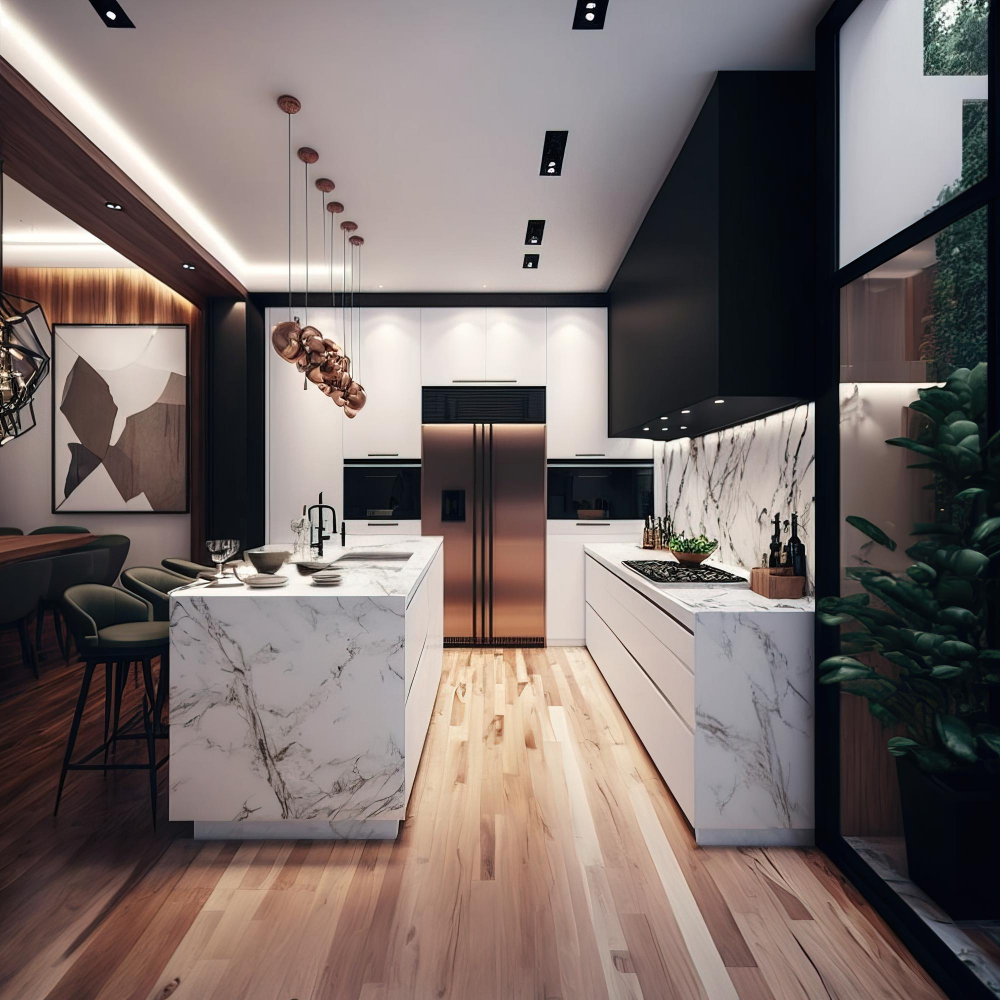
It is made from natural materials such as clay, feldspar, and quartz that are fired at high temperatures to create a dense, non-porous surface. Porcelain slabs come in various colors and patterns that mimic the look of natural stone or concrete but with added benefits such as resistance to stains, scratches, heat damage and UV light fading.
They are also easy to clean with just soap and water making them ideal for busy kitchens or bathrooms. However porcelain slabs can be quite heavy so it’s important to ensure your cabinets can support their weight before installation.
Glass
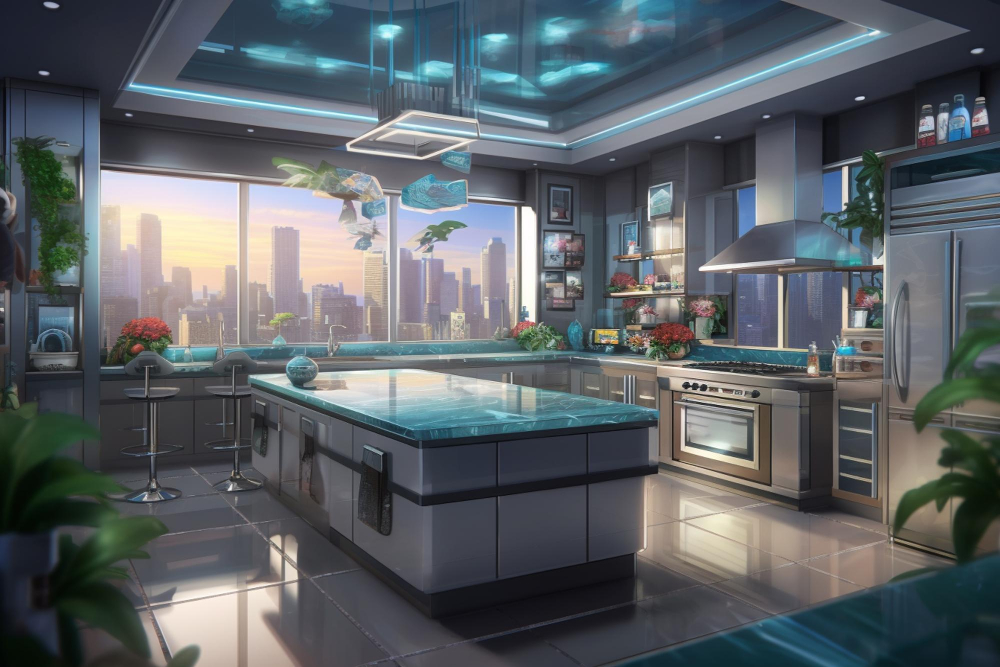
They come in various colors, patterns, and textures to fit any design style. Glass is non-porous, making it resistant to stains and bacteria growth.
It’s also easy to clean with just soap and water or glass cleaner.
One of the biggest advantages of glass countertops is their ability to reflect light which can make your kitchen appear brighter and more spacious. However, they do require some maintenance as they can scratch easily if not handled carefully.
Another thing worth noting about glass countertops is that they are relatively expensive compared to other materials on this list such as laminate or ceramic tile but still cheaper than natural stone options like granite or marble.
Copper
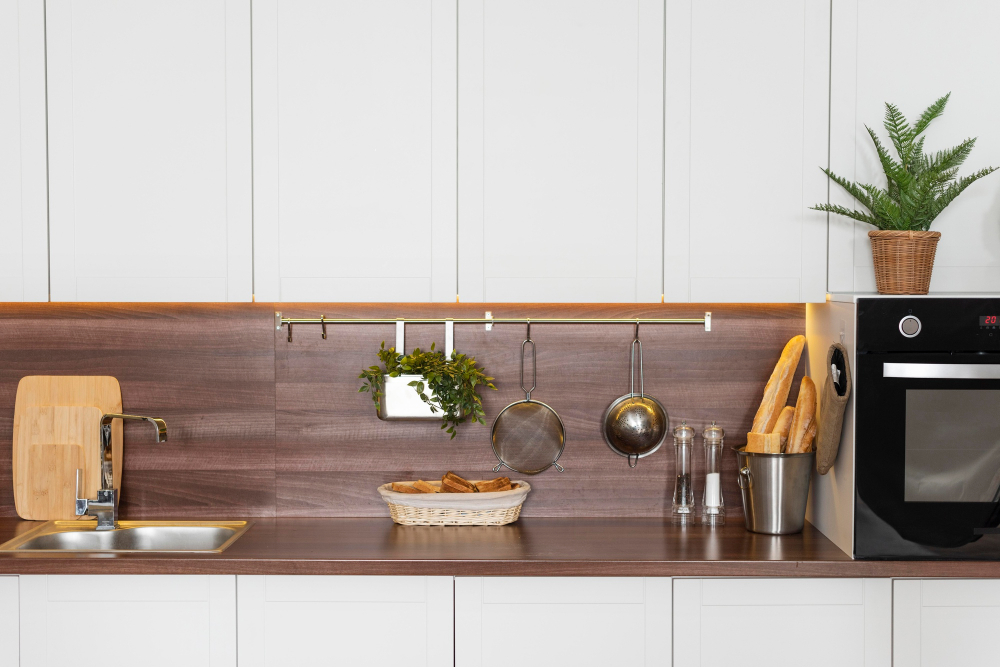
It has a warm, reddish-brown color that adds character to any kitchen or bathroom. Copper is also naturally antimicrobial, making it an excellent choice for areas where hygiene is important.
One of the benefits of copper countertops is their durability. They are resistant to scratches and dents, which means they can withstand heavy use without showing signs of wear and tear.
However, copper does require some maintenance to keep its shine over time. It will develop a natural patina as it ages which can be polished off if desired but many people prefer the aged look.
Copper countertops are not cheap but they do add value to your home due to their uniqueness and beauty.
Recycled Glass
These countertops are made from recycled glass chips and cement, which makes them durable and resistant to scratches. They come in various colors, patterns, and textures that can complement any kitchen style.
One of the benefits of using recycled glass is its sustainability factor. By using this material for your countertop, you’re helping reduce waste in landfills while also creating a beautiful addition to your home.
Another advantage is their low maintenance requirements; they don’t require sealing or waxing like other materials do. However, it’s important to note that these countertops may not be as heat-resistant as some other options such as granite or quartz.
Limestone
It’s a sedimentary rock formed from the accumulation of organic materials such as shells, coral, and other debris. Limestone countertops are an excellent choice for those who want to add warmth and texture to their kitchen or bathroom design.
One of the benefits of limestone is its unique appearance. Each slab has its own distinct pattern with variations in color ranging from beige to gray tones.
This makes it easy to find a limestone countertop that complements your existing decor.
However, it’s important to note that limestone is porous which means it can stain easily if not properly sealed or maintained over time. Acidic substances like lemon juice or vinegar can also etch the surface leaving permanent marks on your countertop.
Travertine
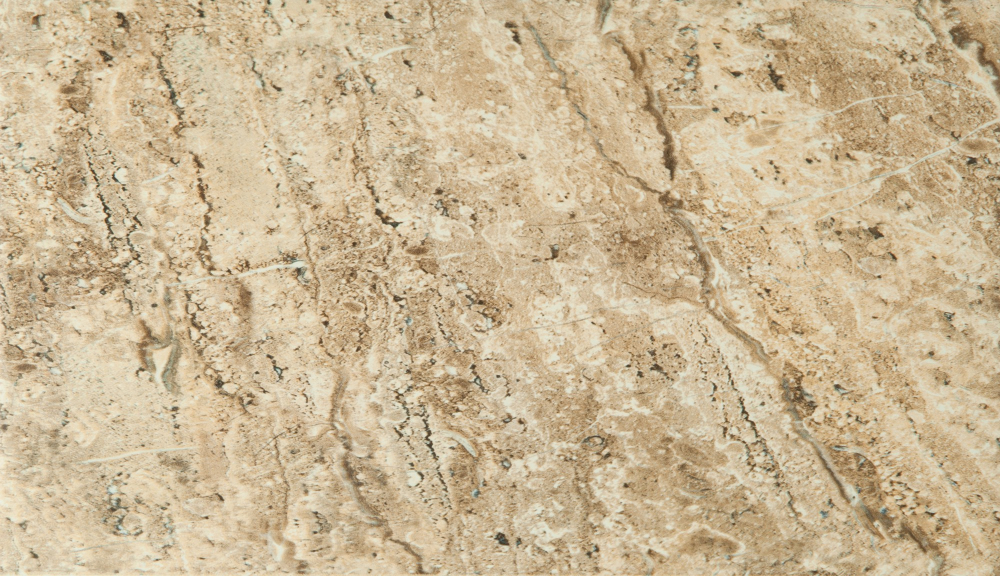
It’s a type of limestone that forms around mineral springs, giving it unique patterns and colors. Travertine countertops are an excellent choice for those who want to add warmth and character to their kitchen or bathroom.
They come in various shades of beige, tan, brown, and even reds.
One advantage of travertine is its durability; it can withstand heat without cracking or discoloring like some other materials might do over time. However, because it’s porous by nature (like all-natural stones), travertine requires regular sealing to prevent staining from spills.
Another benefit of using travertine as your countertop material is the versatility in design options available with this stone – you can choose from honed or polished finishes depending on your preference! Honed finishes give the surface a matte appearance while polished surfaces have more shine.
Terrazzo
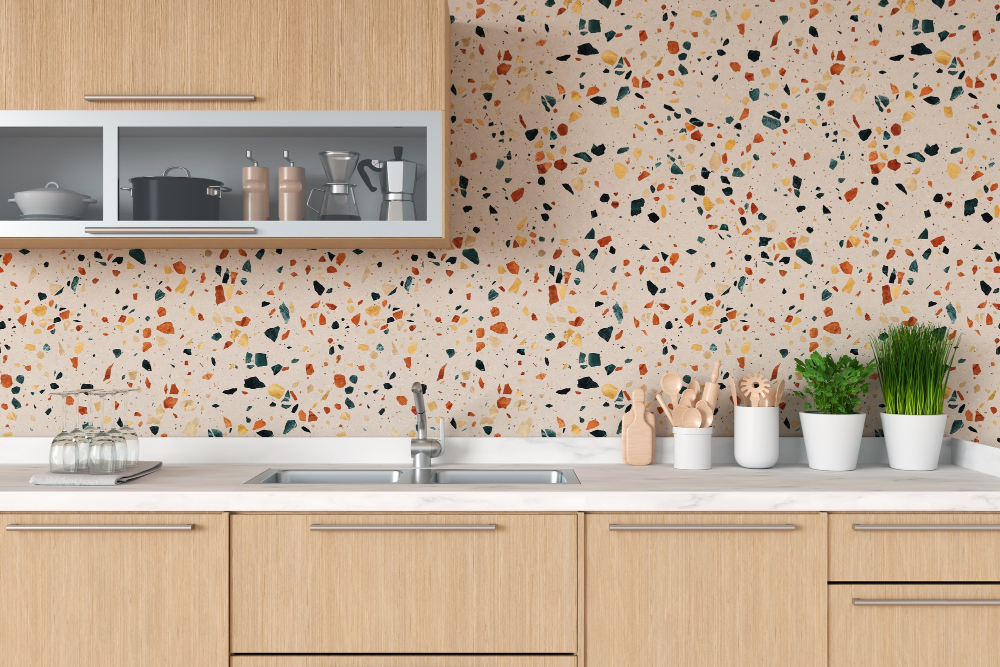
It has been used for centuries as flooring and wall cladding but it’s now becoming popular as a countertop option too. Terrazzo countertops are durable, easy to clean and come in an array of colors and patterns.
They can be customized to fit any kitchen style from modern to traditional. However, terrazzo is one of the more expensive options on this list due to its labor-intensive installation process which involves pouring the mixture into molds by hand before polishing it smooth once dry.
If you’re looking for a unique statement piece that will last for years with proper care then terrazzo may be worth considering despite its higher price point compared to other materials on this list!
Engineered Stone
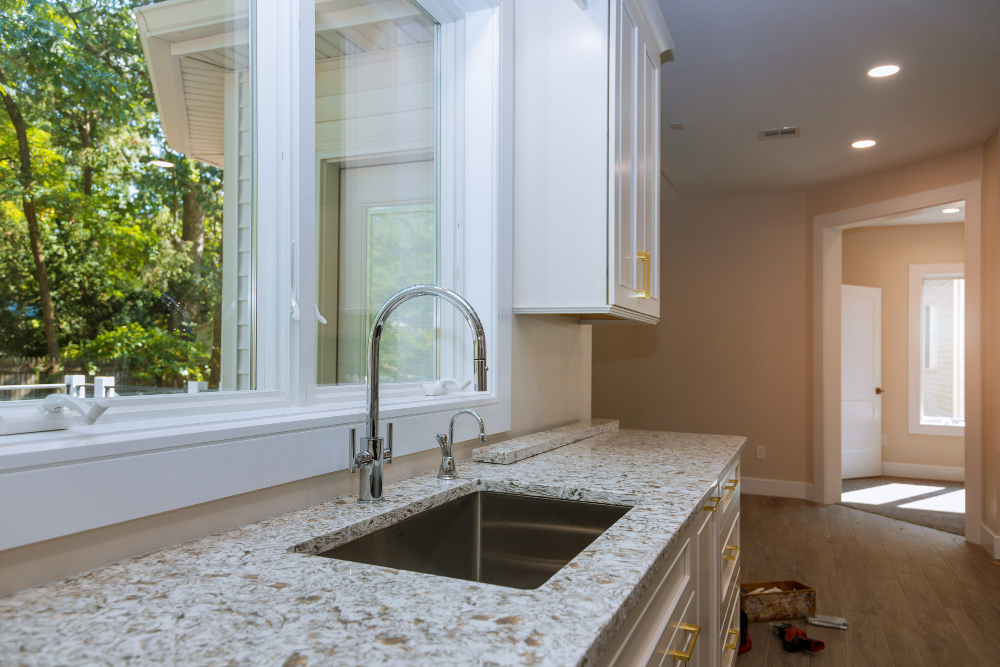
Made from crushed quartz, resin, and pigments, engineered stone countertops are non-porous and resistant to stains, scratches, heat damage. They come in a wide range of colors and patterns that mimic the look of natural stones like granite or marble.
One advantage of using engineered stone for your countertop is that it requires minimal upkeep compared to other materials. It does not need sealing or polishing as natural stones do since it’s already sealed during manufacturing.
Another benefit is its uniformity in color pattern throughout the slab which makes seams less visible than with other materials such as granite where each piece can vary significantly from one another.
Ceramic Tile
It comes in a variety of colors, patterns, and sizes to fit any design style. Ceramic tiles are durable and easy to clean, making them ideal for high-traffic areas like the kitchen.
They can also be easily replaced if one gets damaged or stained over time.
When choosing ceramic tiles for your countertop, it’s important to select ones that are rated as “porcelain” or “vitreous.” These types of ceramic tiles have low water absorption rates which make them more resistant to stains and damage from moisture.
One thing to keep in mind with ceramic tile countertops is that the grout lines between each tile can be difficult to keep clean over time. To minimize this issue, choose larger-sized tiles with thinner grout lines or opt for epoxy-based grouts which resist staining better than traditional cement-based options.
Slate

However, it’s also an excellent choice for countertops, especially if you’re looking for something unique and durable. Slate comes in various shades of gray, green, black and even purple.
It has a matte finish that gives it an earthy feel.
One of the benefits of slate is its durability; it’s resistant to scratches and heat damage making it perfect for kitchen use. Slate doesn’t require much maintenance beyond regular cleaning with soap and water.
Another advantage is its versatility; you can choose from honed or polished finishes depending on your preference or design style.
Bamboo
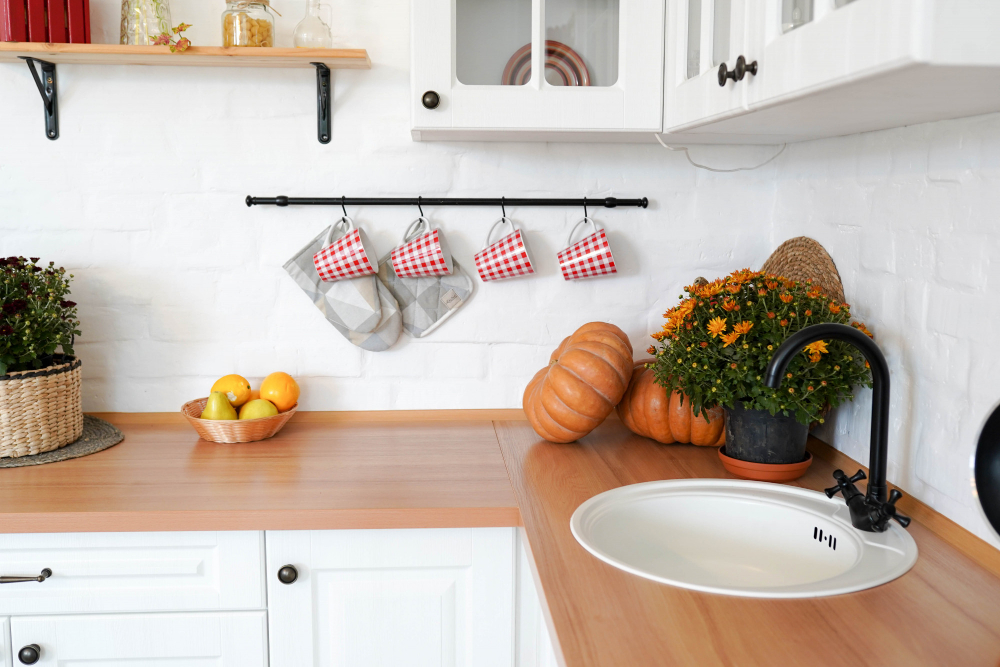
It’s a fast-growing grass that can be harvested without killing the plant, making it an excellent renewable resource. Bamboo countertops are durable, easy to clean, and resistant to scratches and stains.
They have a unique natural look with visible bamboo fibers that add warmth to any kitchen design.
One of the benefits of bamboo is its affordability compared to other countertop materials like granite or quartz. However, it’s important to note that not all bamboo products are created equal in terms of quality and durability.
When choosing a bamboo countertop for your undermount sink, make sure you select one made from high-quality solid strips rather than low-quality laminated sheets glued together with adhesives containing formaldehyde or other harmful chemicals.
Zinc
It has a distinct look that can add character to any kitchen or bathroom. Zinc countertops are durable, antimicrobial, and easy to clean.
They develop a natural patina over time which gives them an aged appearance that many homeowners find appealing.
One of the benefits of zinc is its malleability; it can be easily shaped into different designs and styles, making it perfect for custom-made sinks or unusual shapes. However, zinc does require regular maintenance as it tends to scratch easily due to its softness.
If you’re looking for something out-of-the-box with an industrial feel in your home decor style then consider using zinc as your countertop material choice!.
Recap
Liked this article? Here's what you can read next:
